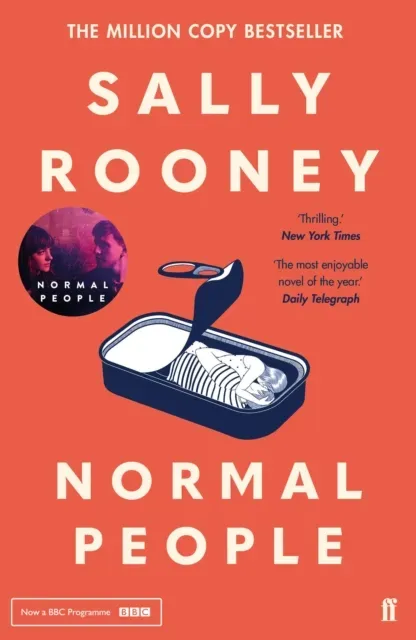Sally Rooney. Normal People
TLDR review: An emotional weekend read that’s easy on the reader. Rooney’s prose is laconic and simple, sometimes resembling the style of TV series narrators. And yes, the characters act and talk like normal people, which is a relief.
I’m usually at least five years late with reading bestsellers, and Normal People is no exception. I’ve read reviews and I’ve seen it “shelved” by at least a dozen (last I checked) of my connections on GoodReads. Out of that dozen, all the readers are women, which doesn’t surprise me as there was something barely perceivably gendered about how people talked about the book.

I bought the book after reading Ben Lerner’s Topeka School, which carried Rooney’s blurb on the cover. And while Lerner’s novel impressed me with all of its multi-layeredness and playfulness with language, Normal People surprised me with the author’s brevity and ability not to over-write. It might seem that Rooney is gliding on the surface, but there’s enough depth there, but that depth is in the pauses and silences, not in multi-page navel-gazing.
The story follows the intertwined life paths of Connel and Marianne – two young people from a little Irish town, and the relationship they form, nurture, damage, and repair along the way. The chapters are anything from five minutes to six months apart, and they shed light on the many times that life is tough for Connel, Marianne, or both of them together. There’s peer pressure and sexual taboos, domestic abuse, and a whole bucket of other issues.
Telling the story, Rooney doesn’t try to be witty, and focuses on emotions rather than descriptions. The lack of descriptions also means that you can paint the characters as you like in your imagination, unless you’ve seen the adaption, which I haven’t.
Class relations play a key role in the book – Marianne comes from money, Connel’s mom comes to clean their house twice a week. Money is never a concern for Marianne and she sometimes seems oblivious to the material differences between them. Interestingly, I found Marianne’s character to have slightly more depth, and it adds to my pet theory that it’s easier to write a deep character who’s affluent. I could say the same thing about Amy, the female protagonist of Beef, who seems like a psychologically deeper character than her counterpart Danny.
Will I be reading more of Rooney? Probably.

Member discussion